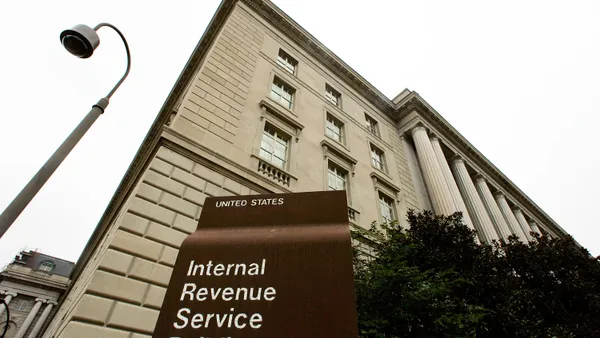Dive Brief:
- Fortune 500 boards appointed a record share of women in 2021 while also seeking out experts to help manage the risks and emerging regulation regarding cyberattacks and business sustainability, according to Heidrick & Struggles.
- The boards last year filled 45% of 449 openings with women directors compared with 41% in 2020, while appointing 41% of directorships with ethnically or racially diverse candidates, Heidrick & Struggles said. Meanwhile, the proportion of current or former CFOs tapped to boards fell to 14% from 21% in 2020.
- “Boards continue to seek fresh thinking as evidenced by the appointment of directors with more diverse backgrounds,” Heidrick & Struggles Vice Chair Bonnie Gwin said.
Dive Insight:
Companies face rising pressure from industry associations, federal regulators, lawmakers and both institutional and retail investors to make diversity of their boards, C-suites and workforce one of their top priorities.
The Business Roundtable, made up of large U.S. companies with 20 million employees and more than $9 trillion in total annual revenue, has committed to increasing diversity and providing metrics on the demographics of corporate boards, senior executives, workforces and suppliers.
Securities and Exchange Commission (SEC) Chair Gary Gensler has called workforce a critical asset of growing interest to investors and has asked agency staff to recommend disclosure mandates on specifics such as employee diversity, compensation and turnover.
The SEC in August backed a Nasdaq rule that listed companies include on their boards at least one woman director and someone who is a racial minority or who self-identifies as lesbian, gay, bisexual, transgender or queer.
Nasdaq requires companies to annually report on the demographics of their boards. Those that fall short of the rule on board composition must provide an explanation for not doing so in their proxy statements or on their websites.
Among Fortune 500 companies, the share of board appointments filled by Black directors was 26% compared with a sharp rise to 28% in 2020, Heidrick & Struggles said. Women at the end of last year accounted for 29% of directors on Fortune 500 boards compared with 19% in 2015.
Still, the boards underrepresent other groups, Heidrick & Struggles said, noting that Asian or Asian-American and Hispanic or Latinx directors hold just 9% and 6% of board seats, respectively.
“We expect that more progress will be made on DE&I [diversity, equity and inclusion] when diverse directors hold more influential board positions, especially as board chair or chair of the nominating and governance committee,” according to Lyndon Taylor, regional managing partner of the North American CEO and board of directors practice at Heidrick & Struggles.
Like CFOs, current or former CEOs gained fewer Fortune 500 board seats, Heidrick & Struggles said. Forty percent of board appointments went to CEOs last year, compared with 60% in 2018.
“Companies are building more resilience to the boards to address looming cybersecurity threats and growing regulatory, shareholder and stakeholder pressure to adopt more sustainable business practices,” Heidrick & Struggles said.
The share of board seats filled by people with cybersecurity experience and a background in sustainability more than doubled from 2020 to last year, from 8% to 17% and 6% to 14%, respectively, Heidrick & Struggles said.
Boards “have areas of expertise that they need, but they still want executives and the board members to contribute broadly,” Taylor said in an interview.
A CFO seeking to join a board would offer unusual appeal as a candidate by combining the knowledge of a financial executive with experience in cybersecurity or sustainability, he said.
















